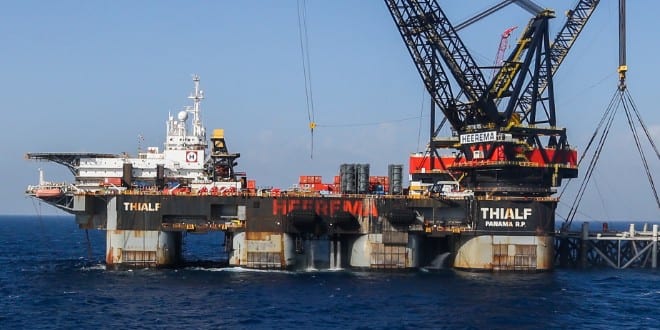With Europe eager to wean itself from its dependence on Russian oil and gas, the war in Ukraine could mark a 180-degree turn in Europe’s energy attitudes with renewables taking a back seat to more robust, if less politically correct sources. Europe’s shift takes place just as Israel has jumped on the renewables bandwagon, most recently halting gas-exploration licenses to focus on developing renewables.
But the most arresting change has come from Germany. Hailed as a leader in green energy, the country is now talking about starting a strategic coal reserve and briefly floated the idea of extending the life of its remaining three nuclear plants (it has since decided against doing so). Germany’s shift is easy to understand—of Europe’s major economies, it is most dependent on Russian gas (51%). Italy is not far behind at 46%. France imports 24%. Eastern Europe is also highly dependent on Russian gas (Romania being a notable exception).
The Europeans have made themselves dependent on Russian supplies by “investing tremendous amounts in renewables” while at the same time “putting an almost complete moratorium on local fossil fuel development,” Yonatan Dubi, professor in the department of chemistry at Ben-Gurion University of the Negev, who frequently lectures on energy issues, told JNS.
“I think the energy lesson that we should learn is that—when push comes to shove—all climate ideologies and all net-zero carbon emission programs are insignificant compared to the Western world’s need for a continuous and stable source of power,” he said. “Not taking this into account is what led Europe to the present energy crisis.”
Not only is Europe in essence funding Russia’s war in Ukraine by paying top dollar for Russian gas, but it’s also at the mercy of Russia for its energy, said Dubi, noting that Russia has threatened to cut gas supplies through Nord Stream 1, the pipeline that crosses Ukraine, if customers do not pay in rubles. “My guess is that they will eventually do what Russia wants because they have no choice,” he said.
Dubi added that Israel is in danger of heading down the same path as Europe by charging headlong towards renewables. It should instead be promoting natural-gas exploration, he said, pointing out a December decision by Israel’s minister of energy halting offshore gas-exploration licenses. The minister, Karine Elharrar, said she did so “to ensure that 2022 will be the year of renewable energies, natural gas will wait.”
The Europeans are recognizing that they made a mistake, affirmed Dubi, adding that he hopes the lesson has not been lost on Israel. “From internal conversations that I have with officials in the department of energy, they understand that Israel must have stable sources of power, that we must have on-site storage and coal power-generation capabilities,” he said.
‘We’re very close to missing the bandwagon’
Elai Rettig, assistant professor at the department of political studies at Bar-Ilan University in Ramat Gan, who specializes in energy geopolitics, agreed that Elharrar had made a mistake, telling JNS: “The fact that she put one against the other, saying, ‘We’re going to focus on renewables and so I’m not going to allow licensing’—it doesn’t work like that. You can’t implement renewables if you don’t have gas power plants to increase electricity when the sun goes down.”
The shortcode is missing a valid Donation Form ID attribute.
“She’s also creating enemies within the two fields. If you’re pitting one against the other, then every kind of renewable project that you’re going to promote, the gas interests are going to go against you,” he added.
Rettig doesn’t entirely blame renewables for Europe’s energy problems. He said Europe’s record-high energy prices last year were mainly caused by Russia. Russia was asked to increase its gas output and refused, demanding that Nord Stream 2—a pipeline that crosses the Baltic Sea to Germany—first be approved.
“That’s what got prices soaring,” he said.
Rettig said the lesson to be learned from the Europeans is that energy security comes from “diversity and diversity alone. You can’t be too dependent on just a single country, even if it’s your friend at that time.”
Dubi argued that Israel should contribute to Europe’s energy diversity by supplying it with natural gas. He advocates restarting the EastMed pipeline project, a proposed 1,300-mile pipeline—1,000 miles of which would be undersea—from the Levantine Basin and making landfall at Cyprus, Greece and Italy. The project was halted when the Biden administration pulled its support.
He also said Israel should restart the UAE pipeline deal, which would transport Emirati oil through existing Israeli pipelines between the port of Eilat on the Red Sea to Ashkelon on the Mediterranean. That project was dropped due to environmentalist opposition.
He said Israel is missing an opportunity to be part of Europe’s energy solution if it doesn’t step up its natural-gas exploration. It should send more natural gas to Egypt, which has a gas liquefaction plant, and then on to Europe. “Think about the geopolitical consequences of Israel and Egypt, combined, saving Europe. And we’re very close to missing the bandwagon,” he said.
Rettig said he isn’t sure the EastMed project is feasible given economic and technical challenges, but he said other things can be done short of that, such as building additional LNG (Liquefied Natural Gas) facilities, perhaps in Egypt or even offshore.
He said it remains to be seen whether the lessons from the Ukraine war have sunk home. “Maybe Europe is finally serious and will put the money into the necessary infrastructure,” he said.
However, Rettig’s personal view is not to sell the gas to Europe. “We have gas that will keep Israel secure for the next 60 to 70 years, and we shouldn’t be so gung-ho about selling it. … This used to be a holy grail for us, finding our own independent source of energy. And now that we found it, we want to sell half of it?”
The shortcode is missing a valid Donation Form ID attribute.



